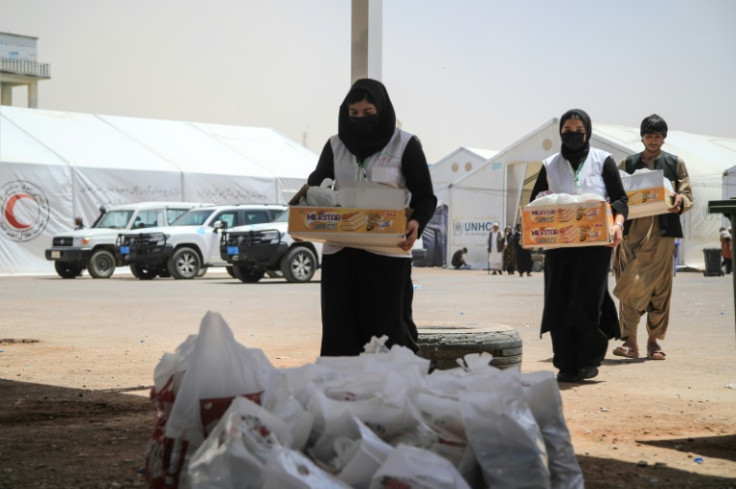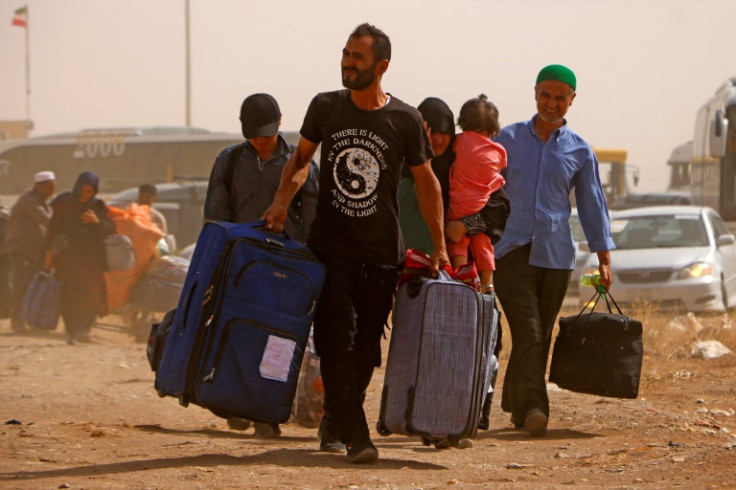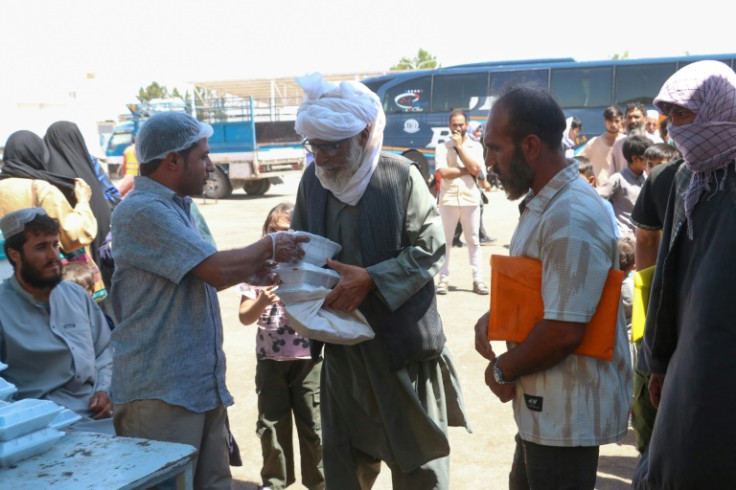Afghans Show Solidarity As Migrant Returns From Iran Surge

At the border with Iran, Fatima Rezaei distributes food and hygiene products to Afghans forced to return, unable to passively stand by as the deportation crisis grows.
The 22-year-old is one of many Afghan volunteers rallying to help their compatriots, despite having little themselves.
Since the beginning of the year, more than 1.6 million Afghans, including many children, have returned after being deported or driven out of Iran, which accuses them of pushing up unemployment and crime.
"It doesn't matter whether you have a lot of money or not. I don't have much, but with the help of Afghans here and abroad, we manage," said Rezaei.
The number of crossings at the Islam Qala border has reached 30,000 on several days, peaking at 50,000 on July 4, according to the United Nations High Commissioner for Refugees (UNHCR).
In response, residents of the western region have mobilised, partly thanks to donations sent by Afghans living in Europe or North America.
A journalist for a local television channel, Rezaei travels over 100 kilometres (62 miles) to reach the border from her hometown of Herat.
From a stack of cardboard boxes, she distributes baby wipes and sanitary towels to women gathered under a tent and surrounded by around a dozen children.
"It is our responsibility to stand by their side," she said.
"The government tries to help, but it's not enough."
International organisations are helping to register migrants but face massive budget cuts.
Meanwhile, Taliban authorities struggle to support the influx of Afghans who have often left everything behind and returned to a country mired in poverty.
Unemployed Hosna Salehi volunteers with her parents' charitable organisation, Khan-e-Meher, to distribute aid, such as infant formula.
"Some women with young children tried to breastfeed but didn't have enough milk due to stress," she told AFP.
"Our fellow Afghans need our support right now. We have a duty to give what we can, no matter if it is a little or a lot."
The show of solidarity "makes us proud", said Ahmadullah Wassiq, director of Afghanistan's High Commission for Refugees.
"The government cannot solve these problems alone," he acknowledged, "and the efforts of citizens must be applauded".
The Taliban government says it provides money upon arrival and is establishing towns dedicated to returning Afghans, though it does not specify when they will be ready.
In Herat, the nearest major city to the border, some in the most precarious circumstances have been living in parks in tents donated by residents.
Some said they were having to rebuild their lives after returning home.
"The only thing we're worried about is finding work," said Hussein, 33, who spent more than 10 years in Iran.
"There, they told us our papers were no longer valid. We had good jobs, now we need to find work and start from scratch," said the father-of-two, who was moved by the support he encountered on the Afghan side of the border.
"They really helped us and extended a hand," he said as he waited for a free bus to take him the nearly 1,000 kilometres to the capital Kabul.
In Afghanistan, where half the population of around 48 million lives below the poverty line according to the World Bank, "there isn't much of a culture of volunteering", said 27-year-old Omid Haqjoo, as he prepared food in vast cooking pots.
"But we are trying to promote it... to provide the support that is missing," he added.
After a day of heat in the humanitarian tents at Islam Qala, Salehi felt strengthened by a "life lesson".
"If I was able to help volunteer, I think everyone can," she said.
"And when I go home and think of all the fellow Afghans who smiled at me and prayed for me, that's enough for me."



© Copyright AFP {{Year}}. All rights reserved.





















